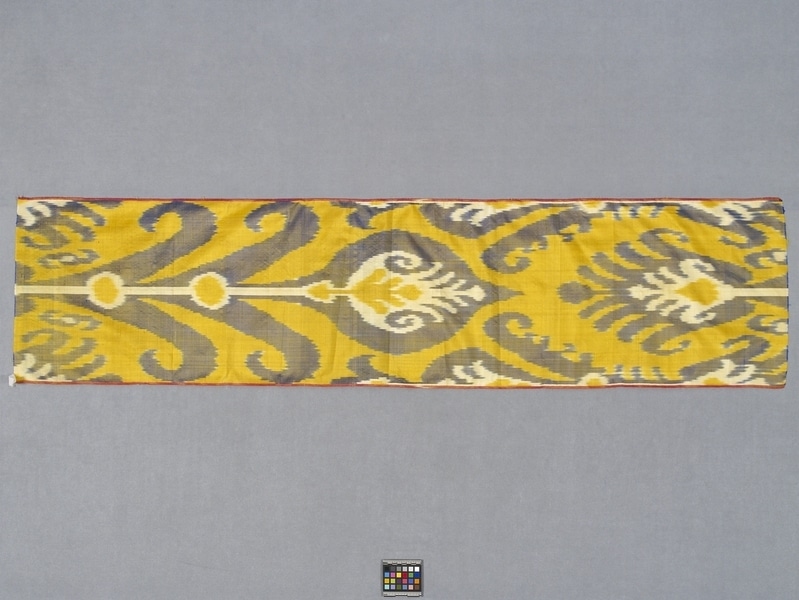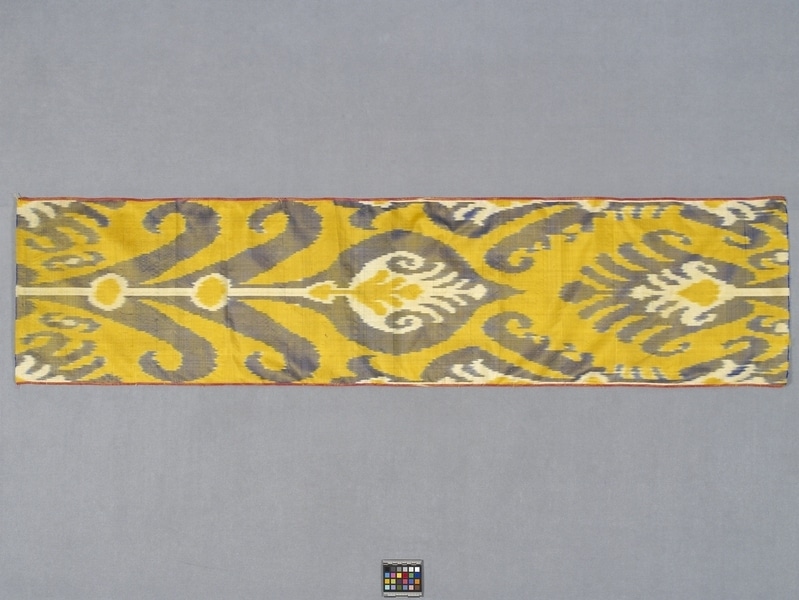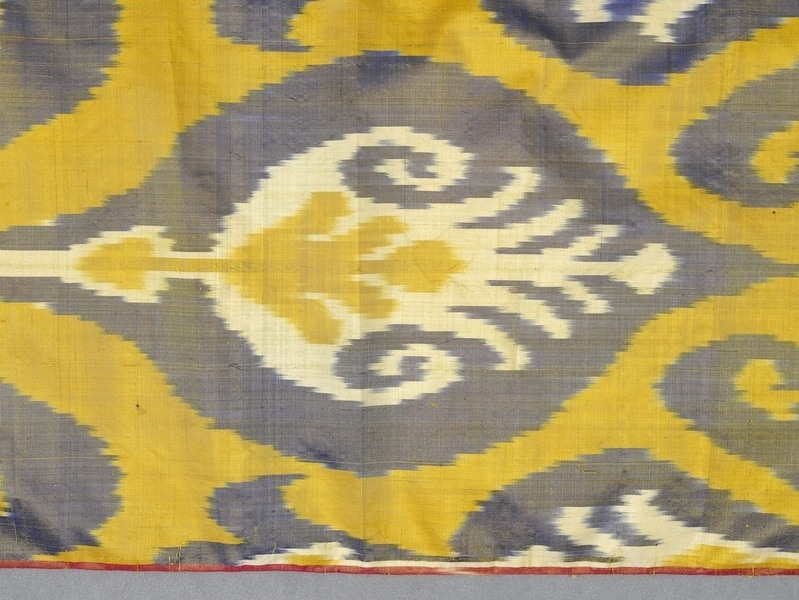Textile Item Number: 1201/7 from the MOA: University of British Columbia



Description
A length of silk warp-face ikat textile, with large-scale, bold, stylized motifs in blue, white and yellow on a yellow background. Red selvages. Torn edges on both ends.
History Of Use
Silk ikat textiles would be used to construct a man’s or woman’s robe (chapan), a wall hanging, or a coverlet for a bed. Prior to the early 20th century, production of ikat textiles was centered in Bukhara and Samarkand, Uzbekistan, but political changes in the area as a result of the Russian Revolution caused many of the ikat-makers to relocate to Afghanistan in order to avoid collectivization.
Narrative
According to Alan Davidson, who imported the item, this textile was dyed and woven in Kabul, Afghanistan, by Uzbek craftspeople. Prior to the early 20th century, production of ikat textiles was centred in Bukhara and Samarkand, Uzbekistan, but political changes the area as a result of the Russian Revolution caused many of the ikat-makers to relocate to Afghanistan in order to avoid collectivization.
Item History
- Made in Kabul, Afghanistan
- Collected in Kabul, Afghanistan during 1976
- Owned by Alan Davidson before February 24, 1987
- Received from Alan Davidson (Seller), Ruth Read Bequest (Funding source) and Museum of Anthropology Shop Volunteers (Funding source) on February 24, 1987
What
- Name
- Textile
- Identification Number
- 1201/7
- Type of Item
- textile
- Material
- silk fibre and dye
- Manufacturing Technique
- warp-face ikat
- Overall
- height 167.2 cm, width 40.3 cm
Who
- Culture
- Uzbek
- Previous Owner
- Alan Davidson
- Received from
- Alan Davidson (Seller), Ruth Read Bequest (Funding source) and Museum of Anthropology Shop Volunteers (Funding source)
Where
- Holding Institution
- MOA: University of British Columbia
- Made in
- Kabul, Afghanistan
- Collected in
- Kabul, Afghanistan
When
- Collection Date
- during 1976
- Ownership Date
- before February 24, 1987
- Acquisition Date
- on February 24, 1987
Other
- Item Classes
- textiles
- Condition
- excellent
- Accession Number
- 1201/0007